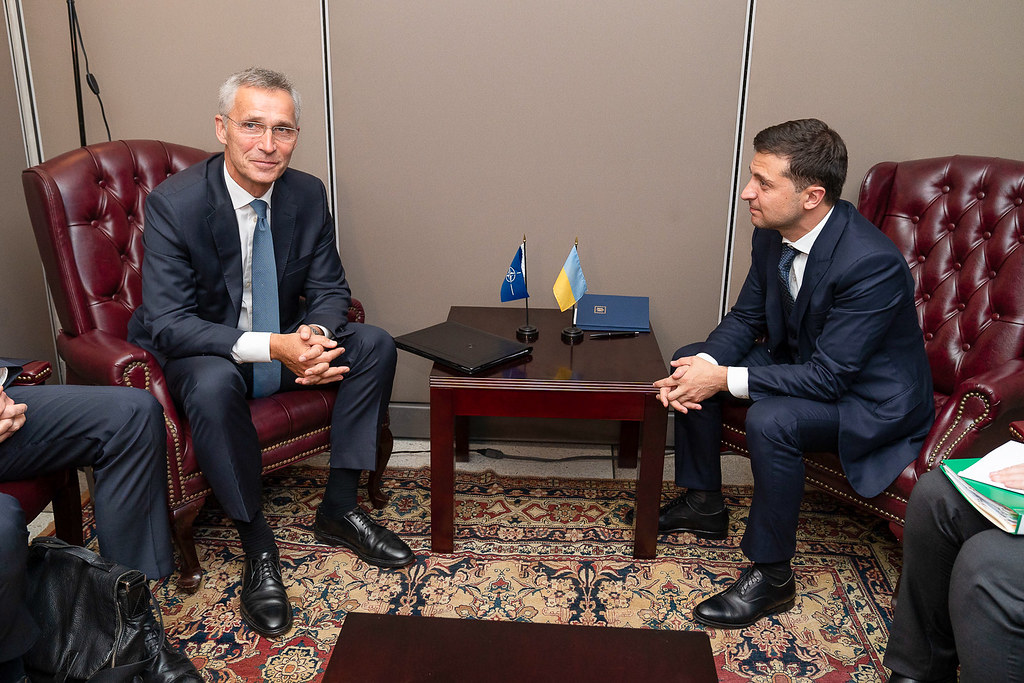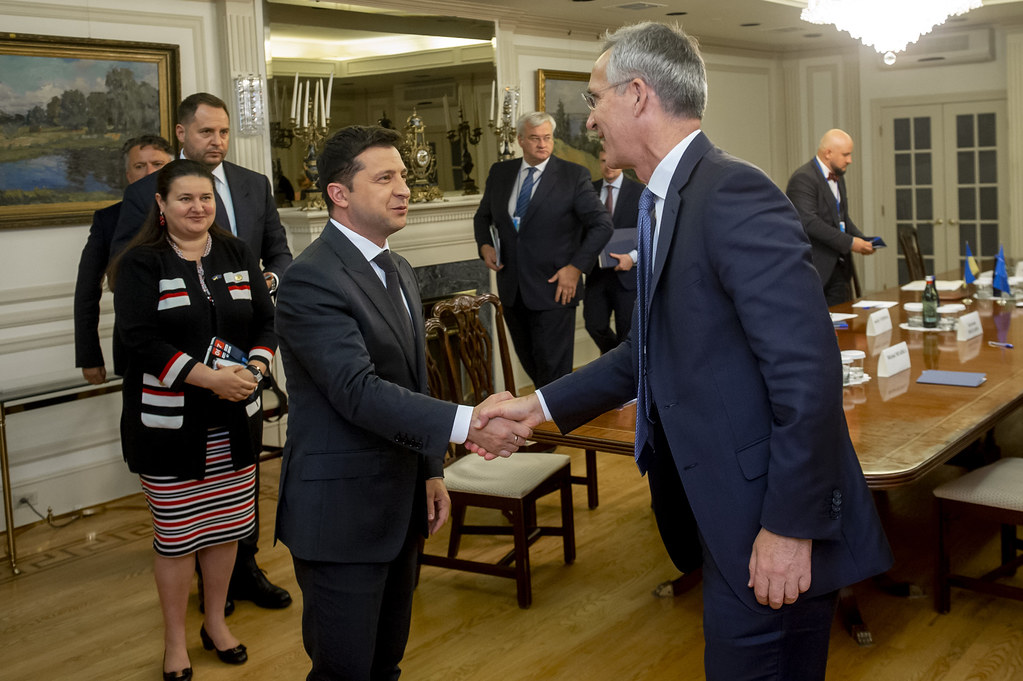During his visit to Ukraine, NATO Secretary General Jens Stoltenberg made his strongest remarks yet on the alliance’s ties with Kyiv, stating that “Ukraine’s future is in NATO,” since Russia’s full-scale invasion in February 2022. Stoltenberg also disclosed that he had discussed a “multiyear support initiative” with President Volodymyr Zelensky, aimed at aiding Ukraine’s transition from Soviet-era equipment and doctrines to NATO standards. The initiative would enable Ukraine to achieve full interoperability with the alliance, according to Stoltenberg.
Despite not being a member of NATO, Ukraine has received significant support from the alliance in its conflict with Russia. While NATO maintains that it is not a direct participant in the conflict, it has played a crucial role in backing Kyiv through donations of military aid and other forms of assistance, totaling over 150 billion euros ($165 billion) since February of last year. This aid includes 65 billion euros of military support, including jets, tanks, and armored vehicles.
The Secretary General of NATO, Jens Stoltenberg, emphasized the alliance’s commitment to Ukraine, stating that NATO will continue to stand by Ukraine for as long as necessary.
Russia justified its invasion of Ukraine, in part, by citing concerns about the expansion of NATO towards its borders.

Earlier this month, Finland’s accession to NATO brought about a significant change in the security landscape of northeastern Europe. The move resulted in NATO’s frontier with Russia more than doubling in size.
The invasion of Ukraine led to a surge in Finnish public support for joining NATO, as well as reigniting calls from Kyiv to become a member of the alliance.
During a joint conference in Kyiv, Ukrainian President Zelensky expressed his appreciation for the support provided by NATO, but also urged Stoltenberg to clarify when Ukraine would be invited to join the alliance.
Zelensky stated on Thursday, “We require more than the current level of engagement. We believe that membership in NATO is crucial for ensuring Ukraine’s security and providing concrete guarantees.”
“Until we become a member, we want to receive very specific security assurances approved in Vilnius. If there is an opportunity to do so, we are ready to cooperate.”
NATO’s policy of maintaining an open door is predicated on the principle that any interested country can join provided they uphold the founding treaty’s principles and demonstrate the ability and willingness to do so. However, a member state has the power to veto a country from joining the alliance if it is deemed not to meet the standards required for membership. These standards include demonstrating a “functioning democratic political system based on a market economy” and “fair treatment of minority populations,” among other things that can be difficult to demonstrate during wartime, as stated on NATO’s website.
Ukraine’s potential membership in NATO poses questions about the security guarantee that forms the cornerstone of the alliance. As per Article 5 of the treaty, NATO members agree that an attack on one member is an attack on all, with the attacked nation invoking Article 5, compelling the rest of the alliance to come to their aid. With Ukraine currently at war, the invocation of Article 5 would almost certainly lead to NATO being at war with Russia.
The prospect of an escalation and the possibility of starting a world war have deterred some alliance members from endorsing Ukraine’s NATO membership, while others maintain certain ties with Russia that prevent them from supporting the move. In December, nine Central and Eastern European nations expressed their support for Ukraine’s membership, but some other members have yet to do so.

NATO Secretary-General Stoltenberg has announced that Ukraine’s NATO membership and security assurances will be a prominent topic at the upcoming NATO summit in Vilnius, Lithuania in July. However, he has not confirmed whether Ukraine will be granted membership.
According to Stoltenberg, Ukraine’s future lies in NATO, and all alliance members agree on this point. The alliance’s primary focus is now on ensuring Ukraine’s success. The expansion of NATO in northern Europe has dealt a significant blow to President Putin’s military campaign, and the Kremlin has reiterated its goal of preventing Kyiv from joining NATO.
Dmitry Peskov, the Kremlin spokesperson, has stated that Ukraine’s membership would pose a significant threat to Russia’s security. Following Finland’s accession to NATO earlier this month, the Kremlin announced that it would increase its military presence near Finland, stating that this move would not bring more stability to Europe. The expansion of NATO has added roughly 1,300 kilometers (830 miles) to the alliance’s border with Russia, bringing the total length of the frontier to about 2,515 kilometers (1,565 miles).

